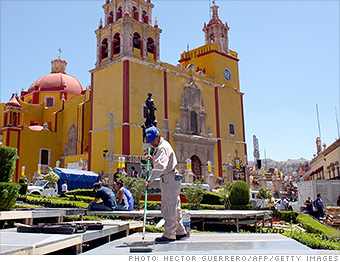"Wall Street’s maneuverings in the commodities markets have added many billions to the coffers of investment banks like Goldman, JPMorgan Chase and Morgan Stanley, while forcing consumers to pay more for gasoline, electricity and a wide range of products, from cars to cellphones. In the last year, federal authorities have accused three banks, including JPMorgan, of rigging electricity prices, and on Monday JPMorgan was working to reach a settlement that could cost it $500 million." (New York Times print edition, July 23, 2013, page B1)
Check out two articles on line:
http://www.nytimes.com/2013/07/21/business/a-shuffle-of-aluminum-but-to-banks-pure-gold.html?pagewanted=all
http://www.nytimes.com/2013/07/23/business/inquiry-possible-into-storage-of-commodities-by-big-banks.html?ref=business
Check out two articles on line:
http://www.nytimes.com/2013/07/21/business/a-shuffle-of-aluminum-but-to-banks-pure-gold.html?pagewanted=all
http://www.nytimes.com/2013/07/23/business/inquiry-possible-into-storage-of-commodities-by-big-banks.html?ref=business
